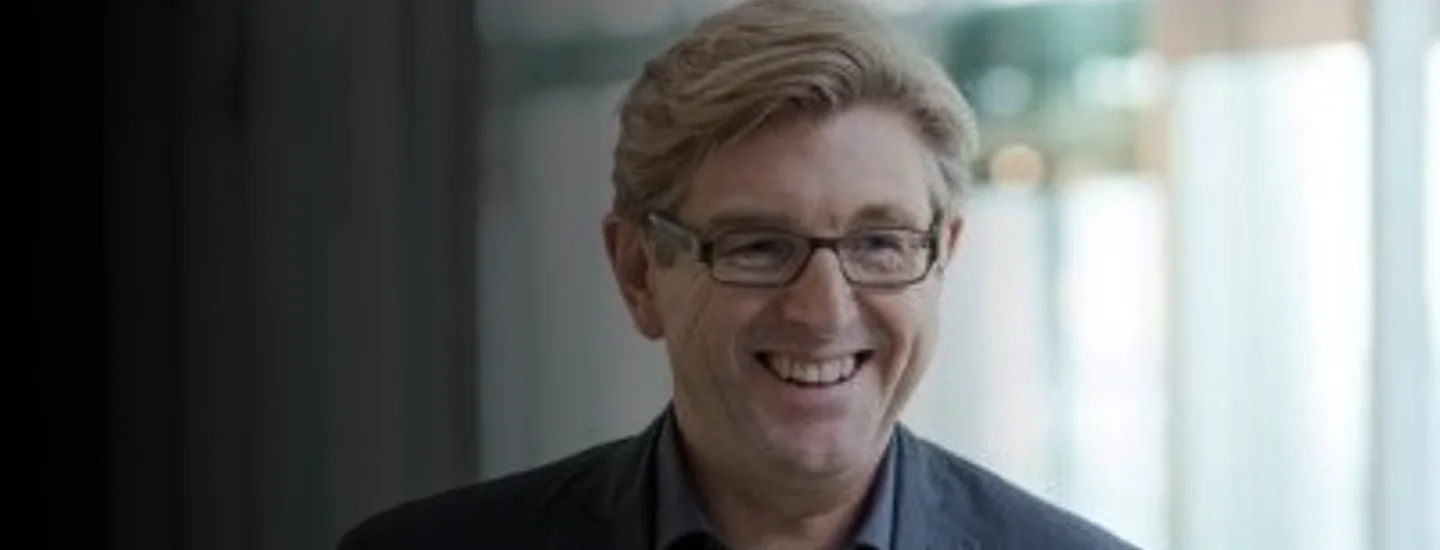In conversation with Keith Weed, former CMCO, Unilever
It was wonderful to see and hear the return of such energetic debate and discussion in its finest physical form at our recent Business Leaders’ Dinner, much of it inspired by one of our special guests for the evening, Keith Weed.
As I explained when introducing Keith, we have known each other for nearly four decades, after both beginning our careers at Unilever. As we carved our different paths in the business world, we – and of course all of us – have witnessed incredible evolutions of the myriad business challenges that we have all had to contend with in the intervening years. However, at this moment in time, it feels like the disruptions to market dynamics have never been more pronounced, in many instances creating a perfect storm for so many organisations to navigate.
Keith treated us to a compelling curation of disruptive, accelerated changes that he has noted, catalysed by the impact of COVID-19, allied to a handful of key implications we would be well advised to keep high on our agenda as we move into 2022:
10 changes catalysed by COVID-19:
- The step change in digital interaction: Device ownership and digital savviness has leapt forward immensely in the past 18 months. Whether that be the resurgence of the QR code, online classes, gaming, video calling, live chat, and messaging. If it was possible, the role of mobile has got even bigger, arguably cemented as an innovation that, in some ways, is bigger than the internet itself.
- The seismic change in commerce: If you lock everyone up and you tell them they can't go shopping, then, by definition, something's going to happen. Beyond the headlines of exponential Amazon growth other evolutions have emerged that may stick for the long term – reengineered packaging for online purchase and delivery, the growing influence of online (and largely faceless) reviews and recommendations, and a truly cashless customer journey, which all essentially amounts to a better online experience for consumers.
- Enhanced connectivity: The proliferation of new, interconnected devices is creating brand new consumer touchpoints and a wave of additional data about not just what people are viewing, but what they are doing. As 5G ramps up, there is a huge opportunity to harness the power of the rocketing ownership of smart devices – and it is just around the corner.
- The pandemic data explosion: More and more data are being created, stored and shared, with consumers increasingly savvy - and understanding - about the “exchange” they undertake with brands here. While there is, of course, a continued consumer interest in privacy, the onus is on businesses to do more with their data security and make this area a bigger priority.
- More online experiences: Online entertainment and experiences has grown in all forms. The metaverse may finally bring some respectability to all of the VR and AR applications we have seen in recent years, bringing them together into a more cohesive digital ecosystem. Meanwhile, the world of gaming is one where brands must consider where they sit – the notion of people spending more time online gaming isn’t going away and it is people of all ages, not just younger groups. Content consumption also continues to gather pace as millions of creators on TikTok, YouTube and Instagram use the power of mainstream technology to deliver the highest quality content experiences.
- People living differently: From “she-sheds” and “man caves” to increasing numbers of multigenerational households and single person homes, COVID has prompted everyone to adjust the way they live, giving brands new consumer segments and trends to consider, from pack sizes to storage solutions in order to serve them well in the new world order.
- Prioritisation of environmental sustainability: The rising fear, particularly amongst younger generations, of climate change has pushed businesses to reassess their commitments to carbon reduction, promises on packaging and waste. Biodiversity also remains an arguably bigger threat to mankind. The rapid emergence of ESG is driving businesses to reevaluate their operations and effectively measure their impact on these matters.
- A greater focus on social sustainability: Sustainability extends full to the agenda around inclusion, equality and diversity that we’ve seen grow significantly again, through lockdown and the Black Lives Matter movement. There’s also the impact that the pandemic has had on people's wellbeing and mental health. As businesses, the prospect of putting together environmental and social sustainability, and managing that as a part of the business that really matters, is extremely powerful not just for your staff, but also for attracting the consumers of the future.
- Big changes in where and how we work: COVID brought working from home to the fore, and of course then has come the many workforce challenges we all have now. Hybrid working is a massive change and one that we have yet to find a concrete solution for.
- Supply chains and shifting costs: The Suez Canal. Log jamming in Chinese ports. The UK’s “ping-demic”, and then new customs rules in the EU. Any one of those would be a major disruption, yet in quick succession, it has been debilitating. Re-engineering supply chains, managing costs, and making sure we have the agility and ability to fund growth in the future is so important.
The implications for business:
- Build the ability to sense the future: The world is changing so much that building the capability to sense the future is a necessity - it's no longer something we can ignore. None of us will be agile enough to adapt to these changes otherwise.
- Portfolio strategy must change: Whether it’s organic, M&A, the world is changing, and we are all going to have to adjust our businesses.
- Purpose, environmental and social sustainability is here to stay: In a world where we have fake news, curated social media, and fake videos, trust has never been so important. But you're only going to be trusted if you do trustworthy things. Find ways to engage with the ESG agenda at scale for your business, get ahead of the sustainability agenda, and get credit from your consumers, your staff, and society.
- Exploit technology and catch up with consumers: Our consumers have better IT equipment than the people who work for us. And they are ahead of us in so many ways. While we may be very good in the physical world, it’s time to get better at critiquing how our companies serve consumers digitally, and then respond.
- Re-engineer supply chains: There is a tidal wave of cost coming towards all of us in the near future, and we know this. If we act now, we can reduce that. But if we don't, we will be overwhelmed.

